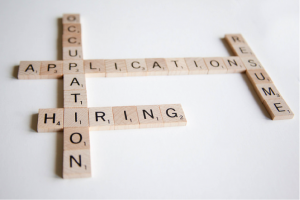 Guest Post by: Jack Baxter
Guest Post by: Jack Baxter
As a manager you are charged with building and maintaining a successful team. In order to do that you have to hire the right talent. The quality of your hires determines your team’s ability to sustain a competitive advantage.
In order to know what to ask a potential candidate you must know what type of job you are hiring for; in other words what does this job require in terms of primary duties, i.e. what skills and experience are required? It doesn’t stop there. You must determine if there is anything or something that would make the candidate unacceptable; what does a “good fit” look or feel like? What are your expectations of this new hire? Finally, what competencies are required in order for this person to succeed?
Your checklist will have the following or similar topics:
- Primary Responsibilities
- Experience
- Education
- Self-Management Style (Emotional IQ)
- Competencies Required
- Expectations (broken down by quarter)
Competency Based Hiring
Here is where you decide the type of competencies that will be required for that person to be successful in the job. The competencies that you assign to the job must align with the job description and support the expectations you require.
Competencies come from the responsibilities of the job. Yes, they can be somewhat subjective; however, it is important that the competency align with the requirements of the position.
For example, let’s say you are hiring for a sales position. Remember you are looking for evidence that the person you are talking to exhibits the behavior that is consistent with someone who understands the competency required. You might consider the following competencies as a prerequisite for this position.
Competency: Financial Analysis
The product may require the individual to understand and explain the cost to own versus the cost to maintain.
Behavior:
- Makes logical presentation showing advantage of a product choice
- Demonstrates they understand the cost effectiveness of the product choice
- Abel to identify areas where the right product choice will make a positive financial impact on revenues
So the question you might ask to determine if this individual’s past behavior would indicate that this person would be a best performer.
“Can you give me an example in your previous position where you had to explain the financial advantages of a certain product choice and how did the potential customer respond to your analysis?”
Simple enough, right? Let’s try another one.
Competency: Client Relationships
The individual in this position must be able to establish, cultivate and manage client trust and brand loyalty over the life of the product.
Behavior:
- Creates a partnership with the client so the individual (sales person) can anticipate future needs and solve current problems
- Establishes the clients’ needs and expectations
- Involves subordinate members of the staff of the company and the client to provide services proactively
- Hold regular meetings with the client to gauge product performance against service level agreements
So the interview question would go something like this:
“Detail how you would establish and maintain a client relationship with a new customer that made a move from a competitor to our company.”
Early in my management career one of my mentors once told me; “Questions are the answer”. In other words questions in an interview must be structured to obtain the appropriate information. As an interviewer, you are only as good as the questions you ask.
There were times during an interview that I felt I was not getting all the information I needed. I was not clear in my question which led to a misunderstanding on the part of the candidate which made it necessary for me to ask the question a different way. Rewording a question with one of the following phrases can make a big difference in how the question is clarified.
- What key elements…
- Why is/was that important…
- How did you do that…
- What part did you play…
Take Detailed Notes
You will need to establish guidelines for scoring the interview. It is important that you ask the same questions from one interview to the next so that you will have established a baseline for each candidate. Your guidelines should consider the level at which the candidate performed and your estimation on how strong the candidate is. To improve your skill as an interviewer take detailed notes. There has been more than one occasion where I did not take enough notes and had to re-interview my top two candidates.
—-
